Government
Happy St. Patrick’s Day 2019
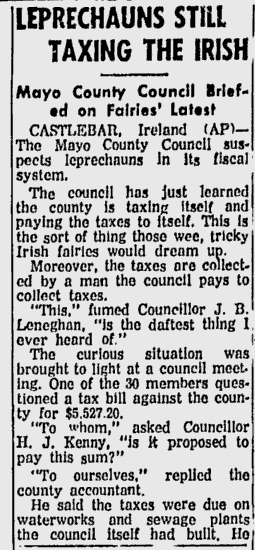
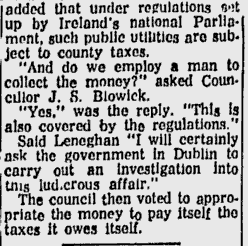
Source.
Posted By: Paul - Sun Mar 17, 2019 -
Comments (0)
Category: Government, Foreign Customs, 1960s, Europe, Fictional Monsters
Prince Leonard Casley, RIP
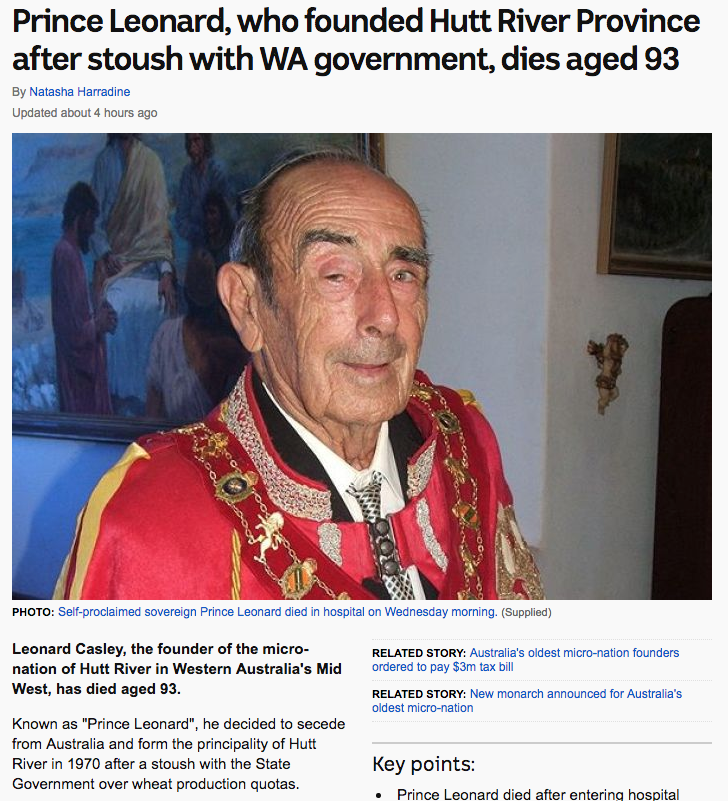
Full article here.
Wikipedia page.
Posted By: Paul - Thu Feb 14, 2019 -
Comments (0)
Category: Eccentrics, Curmudgeons and Contrarianism, Government, Unauthorized Dwellings, Outsider Art, Performance Art, Foreign Customs, Obituaries, 1970s
Canadian Prime Minister Consults Ghost Dogs

Article:
William Lyon MacKenzie King (1874-1950), Canada’s 10th and longest serving Prime Minister was a devoted dog owner in life and in death.While active in politics King had an achingly dull public image, which was certainly at odds with the goings-on in his private life. What the Canadian populace wasn’t aware of was his séances, his consultations with spiritual mediums, table-rapping sessions, tea-leaf readings and communing with the spirits of the likes of former PM Wilfrid Laurier, his long-deceased mother, and of course his dear ghost dog, Pat. That he owned and frequently used both a Ouija board and a crystal ball was published in Time Magazine in 1953, news that shocked the nation. Rampant rumours circulated about King’s oddities, some true, most false. That King had Pat stuffed by a taxidermist so that the little dog would always be by his side turned out to be untrue. King’s detailed diary entries, published after his death in 1950 revealed that King consulted the dead Pats during these séance sessions in manners of international political policy, conscription, and Liberal Party Leadership.
King, obsessed with death and the afterlife, often expressed his wish to communicate with the living after he died, just as he hoped to be reunited forever in the spirit world with his three Pats; “we shall all be together in the Beyond,” he wrote, “of that I am perfectly sure”.
Posted By: Paul - Wed Jan 30, 2019 -
Comments (2)
Category: Communications, Eccentrics, Government, Officials, New Age, Paranormal, Dogs, Twentieth Century
The Mecklenburg Declaration of Independence
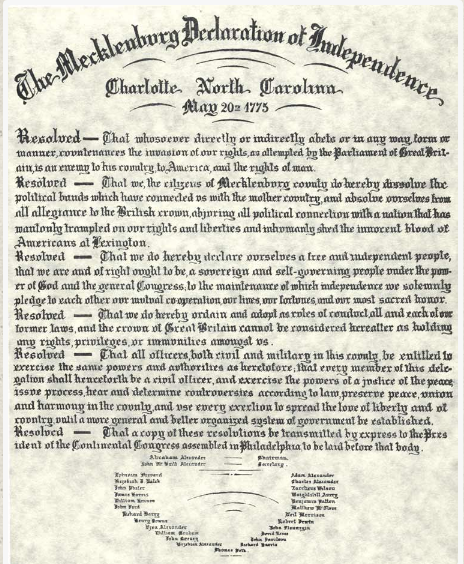
An honest mistaken memory, or a deliberate hoax to cash in on the early glamour of the American Revolution? You decide!
The Wikipedia page.
History Channel account.
The Mecklenburg Declaration of Independence is a text published in 1819 with the claim that it was the first declaration of independence made in the Thirteen Colonies during the American Revolution. It was supposedly signed on May 20, 1775, in Charlotte, North Carolina, by a committee of citizens of Mecklenburg County, who declared independence from Great Britain after hearing of the battle of Lexington. If the story is true, the Mecklenburg Declaration preceded the United States Declaration of Independence by more than a year. The authenticity of the Mecklenburg Declaration has been disputed since it was published, forty-four years after it was reputedly written. There is no verifiable evidence to confirm the original document's existence and no reference to it has been found in extant newspapers from 1775.[citation needed]
Professional historians have maintained that the Mecklenburg Declaration of Independence is an inaccurate rendering of an authentic document known as the Mecklenburg Resolves. The Mecklenburg Resolves were a set of radical resolutions passed on May 31, 1775, that fell short of an actual declaration of independence. Although published in newspapers in 1775, the text of the Mecklenburg Resolves was lost after the American Revolution and not rediscovered until 1838. Historians believe that the Mecklenburg Declaration was written in 1800 in an attempt to recreate the Mecklenburg Resolves from memory. According to this theory, the author of the Mecklenburg Declaration mistakenly believed that the Resolves had been a declaration of independence, and so he recreated the Resolves with language borrowed from the United States Declaration of Independence. Defenders of the Mecklenburg Declaration have argued that both the Mecklenburg Declaration and the Mecklenburg Resolves are authentic.
Posted By: Paul - Sat Jan 12, 2019 -
Comments (0)
Category: Antiques, Anachronisms and Throwbacks, Confusion, Misunderstanding, and Incomprehension, Government, Hoaxes and Imposters and Imitators, Politics, Eighteenth Century, Nineteenth Century
President Truman and the Albino Kangaroo
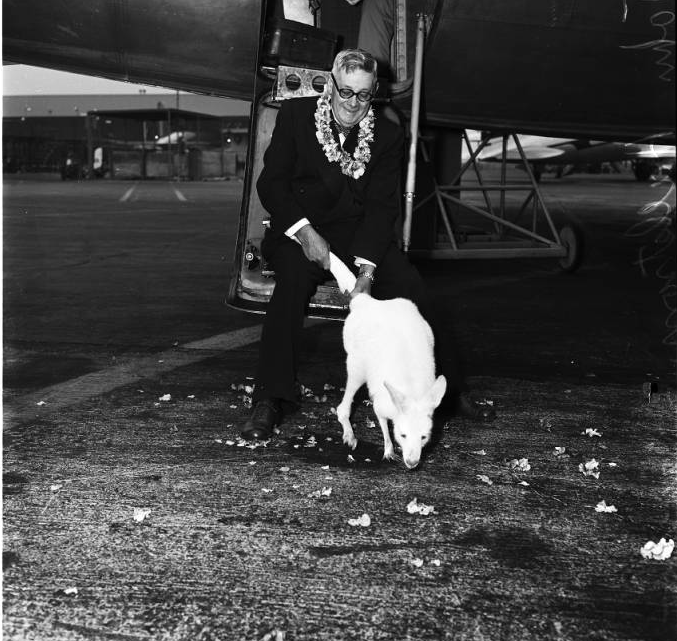
Source.
The animal was spoken of at a press conference.
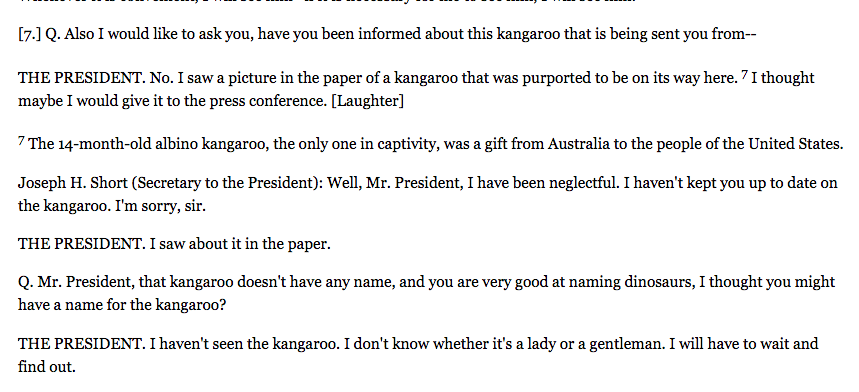
Source.
But according to LIFE, it came with a name.
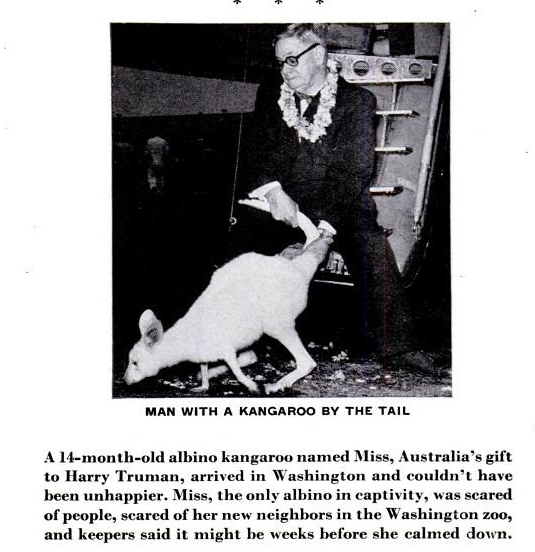
Source.
BTW: what was meant by Truman being good at naming dinosaurs? I think this is the answer:
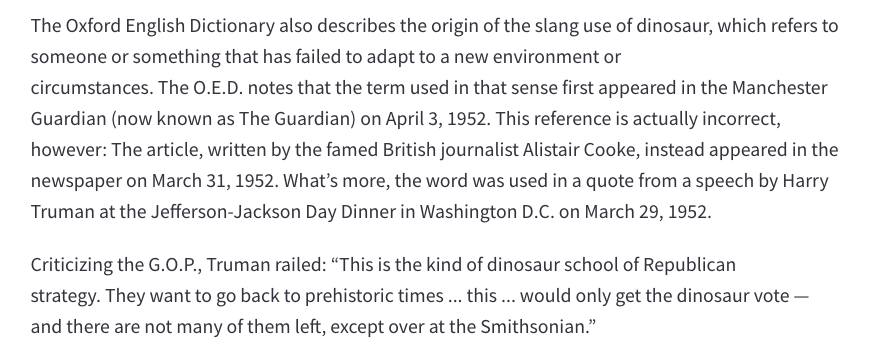
Source.
Posted By: Paul - Mon Aug 20, 2018 -
Comments (0)
Category: Animals, Government, Diplomacy and Foreign Relations, 1950s, Australia, North America
Eisenhower on Modern Art
Apparently, Nikita K. wasn't the only critic of modern art outraged by the 1959 exhibition, as you can see from the article below. Eisenhower and Harry Truman weighed in at times.But Eisenhower, like George W. Bush today, also painted as well, presumably showing us what he regarded as good art.
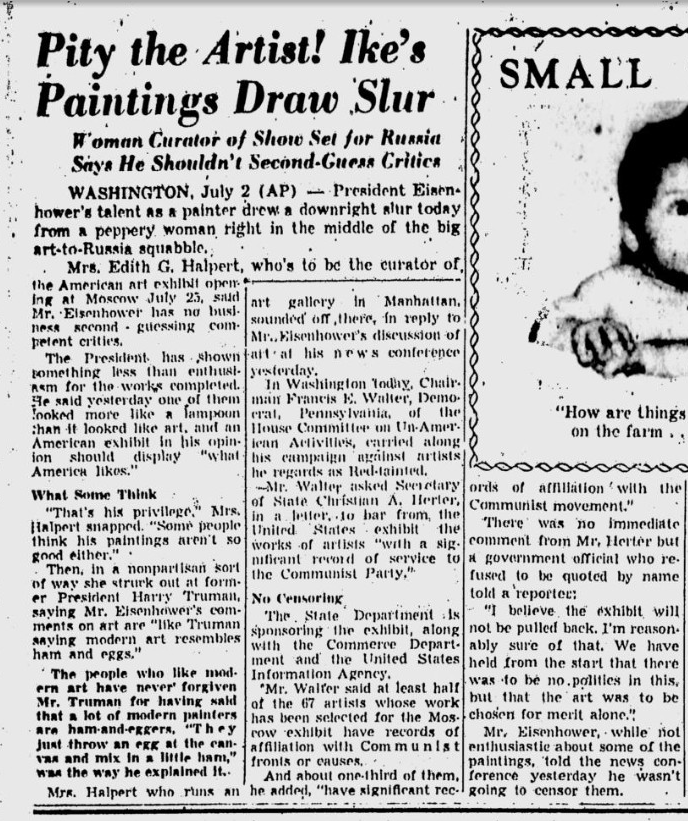

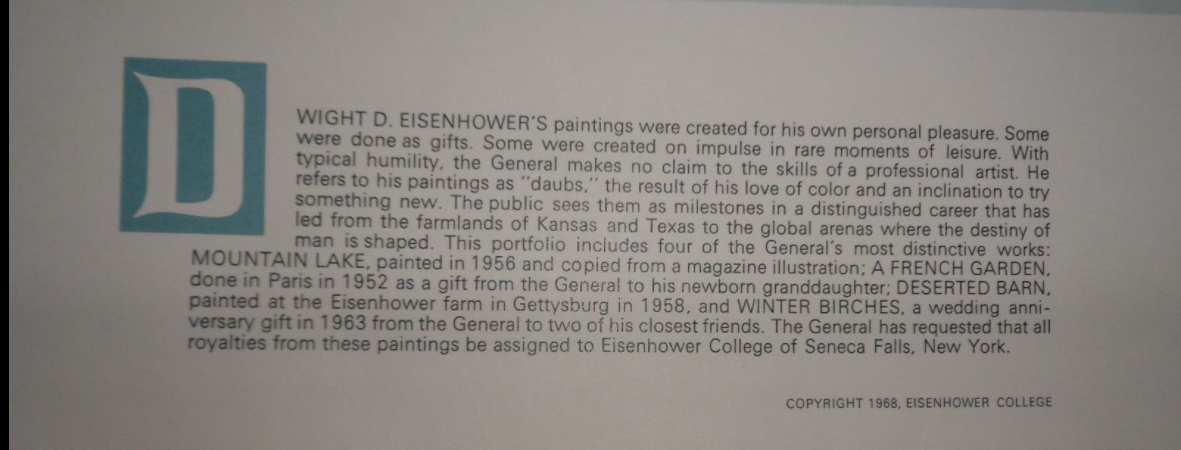
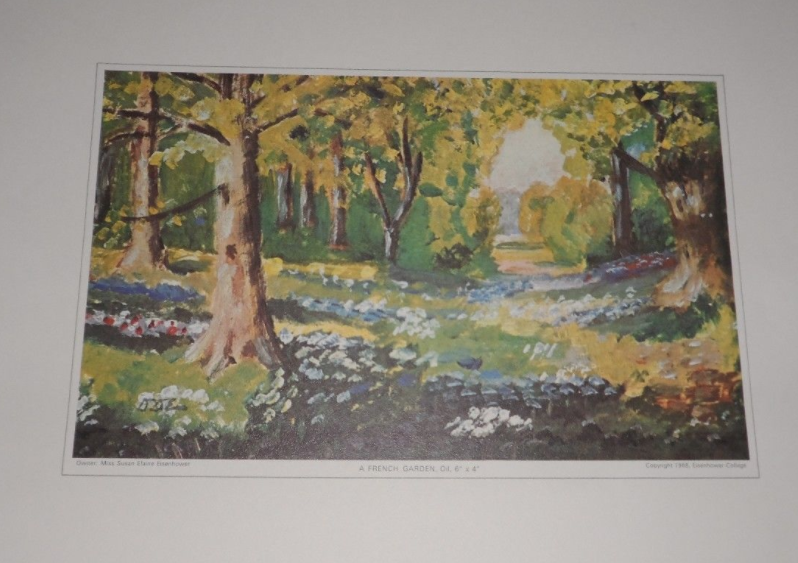
Posted By: Paul - Sun Aug 12, 2018 -
Comments (1)
Category: Art, Government, 1950s, Russia
New Frontier Board Game
"New Frontier" board game, "THE GAME NOBODY CAN WIN", designed by Colorful Products, Inc. The game is an anti-John F. Kennedy, anti-socialist "twist" on the MONOPOLY board game published by Parker Brothers. The front of the package reads "The Funniest Political / Game of the Century!" over the silhouette of rocking chair labeled "J.F.K.". The game board contains references to Hubert Humphrey, Lyndon Johnson, Edward Murrow, et al. The game was packaged by the Occupational and Training Center of Help for Retarded Children, Inc.
More pix at this link.
A few others here.
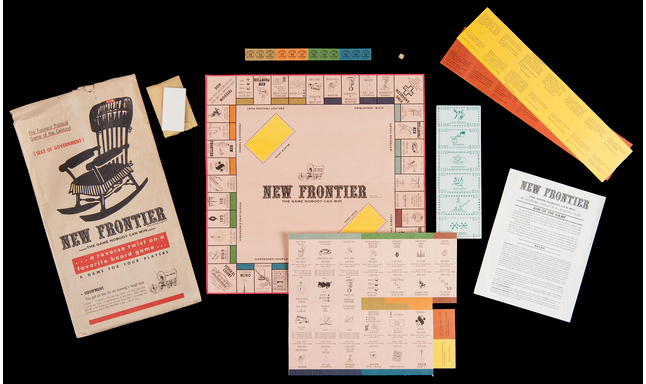
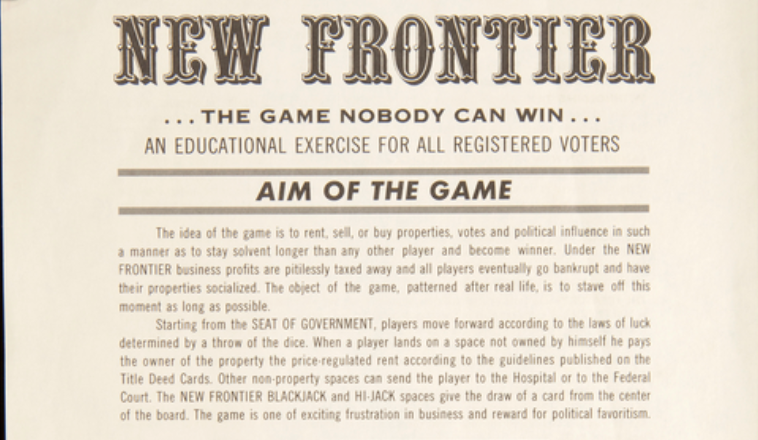
Posted By: Paul - Tue Aug 07, 2018 -
Comments (1)
Category: Games, Government, 1960s, Satire
The Presidential Comedy Albums of Earle Doud
Everyone knows the famous JFK-Vaughn Meader album. But how many realize the producer Earle Doud went on with that theme, to much less acclaim?I can't seem to find any clips on YouTube of the later ones.
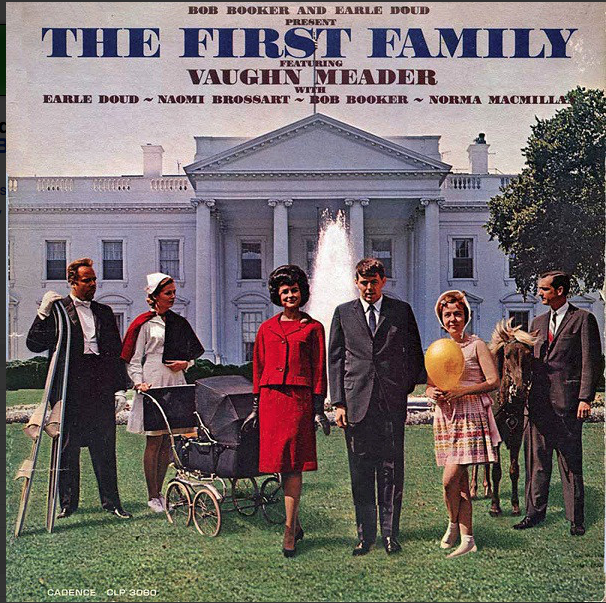
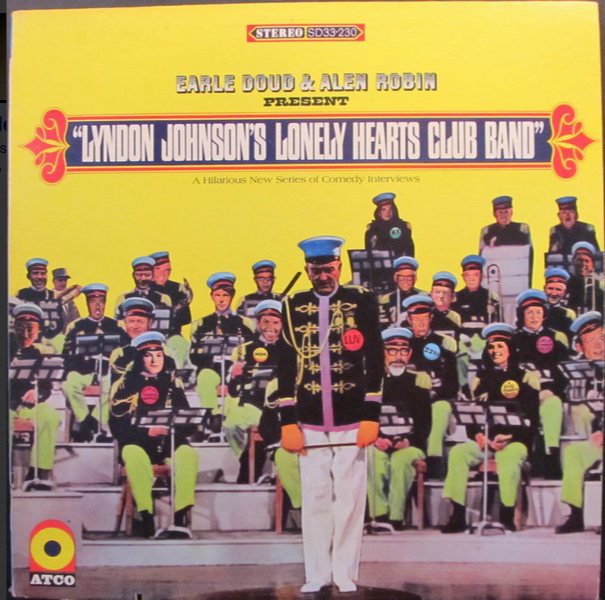
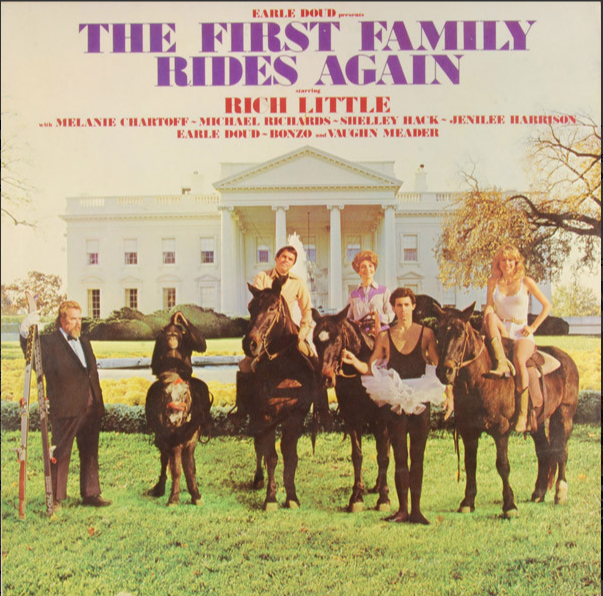
Posted By: Paul - Thu Feb 08, 2018 -
Comments (3)
Category: Government, Humor, 1960s, 1970s, 1980s
Chet Huntley Explains the Strategic Air Command
Be sure to enjoy the SAC theme song starting around 6:30.
Posted By: Paul - Thu Feb 01, 2018 -
Comments (7)
Category: Government, Music, War, Weapons, 1960s
Harvesting and Storage of Sorghum Silage
In our untiring quest to find the most boring material ever filmed or written, which began with "Timber Bridge Inspection," reposted below, we bring you the entire contents of a scintillating pamphlet.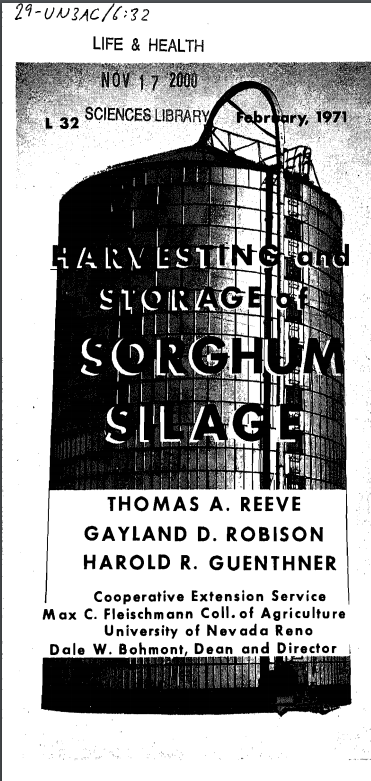
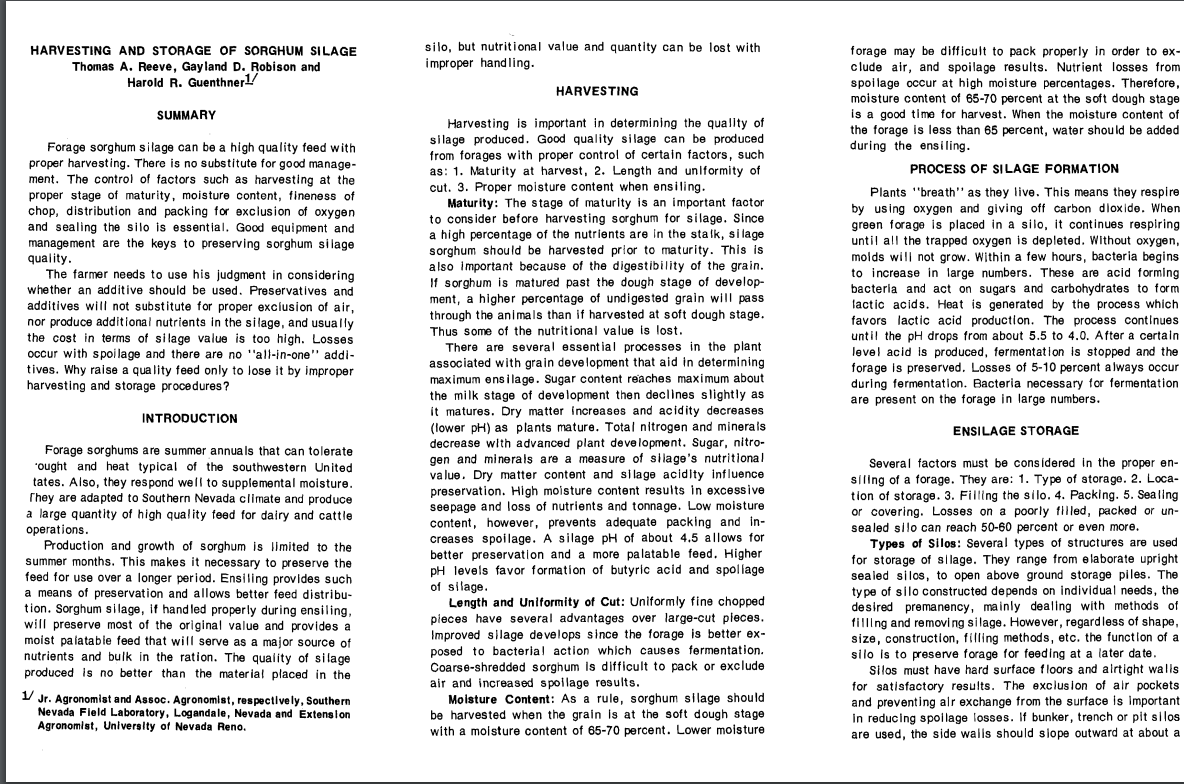
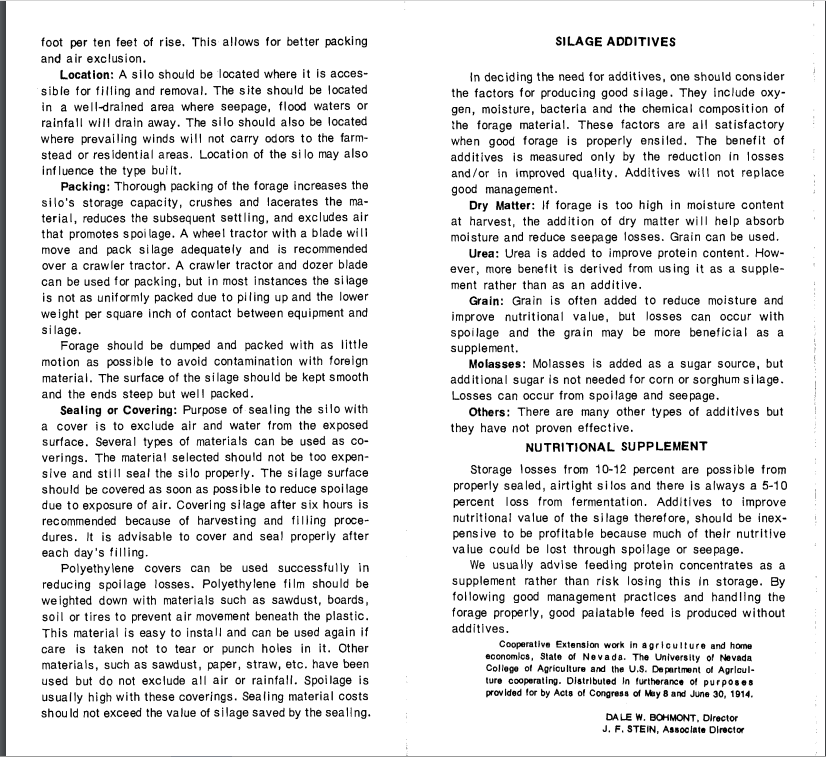
Original document here.
Posted By: Paul - Sat Jan 20, 2018 -
Comments (0)
Category: Agriculture, Boredom, Government, 1970s

| Who We Are |
|---|
| Alex Boese Alex is the creator and curator of the Museum of Hoaxes. He's also the author of various weird, non-fiction, science-themed books such as Elephants on Acid and Psychedelic Apes. Paul Di Filippo Paul has been paid to put weird ideas into fictional form for over thirty years, in his career as a noted science fiction writer. He has recently begun blogging on many curious topics with three fellow writers at The Inferior 4+1. Contact Us |




